This is where Hitler's Wunderwaffe is to be created - a biological weapon. The Ursuline Convent becomes the seat of evil. The work is led by the experienced war criminal Kurt Blome.
Today Pokrzywno is part of Poznań. Before the war, it was a small village that was still outside the city limits. It is here that the Ursuline Convent of the Roman Union was founded and still exists today . And this is the place the Germans chose to build a secret facility where research on biological weapons was to be conducted . However, the Nazi research center at the heart of a Catholic monastery was not to heal people and save their lives - it was to bring suffering and death. Can you imagine a more cynical and murderous scheme?
In 1943, the Germans established the Zentralinstitut für Krebsforschung, i.e. the Central Cancer Research Institute, in the monastery. It was to operate at the Medical Faculty of Reichsuniversität Posen, it was also planned to open a branch in Międzychód and an experimental station in Bielsko. In 1939, when the Germans occupied Greater Poland and Poznań, Ursuline sisters resided in the convent in Pokrzywno. The local monastery was established in 1925–1927. In the monastery area, next to the main building, there was a primary school and an orphanage for poor children from the area , put into use at the turn of 1931 and 1932. There was a large park, orchard and garden around it.
Elizabethan Sisters lived nearby - the first four sisters from this order came to Pokrzywno on September 2, 1922. In 1926, the St. Elizabeth, dedicated to Our Lady of Perpetual Help in Poznań, bought from attorney Kazimierz Żuromski a landed estate, along with a manor and a farm, after a certain Kamil Hellmann. It is in this manor house that the Elizabethan sisters lived. They ran a farm here, they had a vegetable and fruit garden.
Work camp for nuns
In 1939, after the occupation of Poznań, the Germans reorganized the Ursuline nunnery. At the outbreak of the war, 19 professors, 42 novices and 11 postulants lived there . There was also a primary school for 11 students and an orphanage. The economic base consisted of a vegetable garden and a small farm. In November 1939, the Germans quartered 40 professors from Poznań to the convent in Pokrzywno. In the years 1941–1942, 18 of them left for the General Government, the rest remained in Pokrzywno.
The Germans did not deport the nuns, but set up a labor camp for them . They worked at home, in the garden, on the farm and in the fields. The work in the field and on the farm lasted from six to twelve, with a half-hour break for breakfast. The hour and a half lunch break began at noon. Then they continued to work until a half-hour break for tea. The day ended at 7pm.
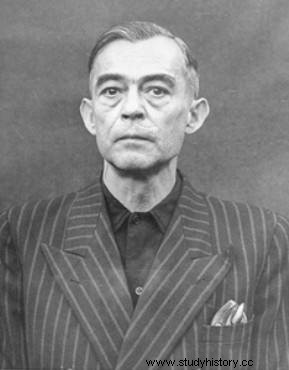
Kurt Blome - director of the Central Cancer Research Institute
In 1941, the Germans assigned four Ursulines to minister to the Germans who lived in the mansion with the Elizabethan nuns, in 1948, where the families of Dr. Blome and his closest associates settled. Gestapo officers from Poznań started taking the sisters from Pokrzywno to their private homes to work as maids in them. The sisters were also employed at the Gestapo headquarters in Poznań (Soldatenheim - a soldier's house, where nuns were used, inter alia, to work in the kitchen) and at the forensics facility at Reichsuniversität Posen. During the war, a total of twenty-two nuns worked outside the convent.
Dr. Blome's little sisters
In 1941 or 1942, Polycarp's sister Zając was assigned to work as a housekeeper in the Blome apartment on the first floor of the manor house. She was ministering to the doctor's wife, Bettina, who was also a doctor. First, my sister worked in the kitchen, then she sewed and mended clothes for, among others, Polish workers working in Pokrzywno. There was another Polish maid at Blome's house, a girl from Łódź named Czesia, who was cleaning. According to the nun's account, the doctor was rarely present at home. He was coming for short visits from Poznań or Berlin. He was always polite and polite. He often went hunting.
At the end of the war, Sister Anakleta worked as a housekeeper for Dr. Blome. According to her, the doctor worked in Berlin on a daily basis and when he came to his family every week, he would bring small gifts for the sisters. He gave gifts through his wife, not personally. The Anacletes have never been hurt in Dr. Blome's home.
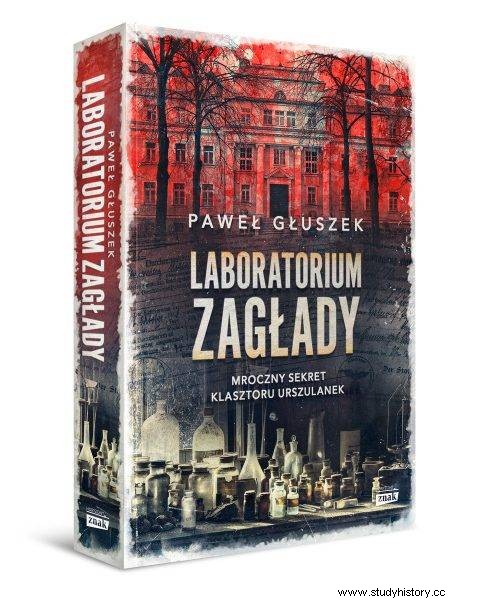
The text is an excerpt from the book by Paweł Głuszek "Extermination Laboratory. The Dark Secret of the Ursuline Convent ", which has just been released by the Znak Horyzont publishing house.
In 1943, sister Eryka Schwichtenberg became a housekeeper in the apartment of Dr. Mentzl, Blome's associate. Mentzel lived with his wife and children on the ground floor of the Elizabethan Sisters' house. He and Blom stayed mainly in Berlin, and he came to Pokrzywno every two weeks. Sister Erika also worked for him in Berlin. She cooked, cleaned and ran the house. She was employed there until September 1944, then she had to go to work in a tank factory. The previous employer wanted to put her on the Volksdeutsche list, but her sister - despite the doctor's and his wife's requests - refused to agree and ended up in the camp.
School of Nazism
From the beginning of the war, the Germans intimidated and persecuted the nuns living in Pokrzywno. In 1941, they were forbidden to attend holy mass and a year later all nuns were ordered to wear civilian clothes. According to various sources, on March 21 or 25, 1941, the Elizabethan sisters and priest Bolesław Wyszyński, the chaplain of the Ursuline sisters, were transported to the labor camp in Bojanów.
In winter, at the turn of 1940 and 1941, 150 members of the Hitlerjugend with their guardians were brought from Berlin to the Ursuline convent in Pokrzywno. They were to organize a school for young adepts of Nazism . They took up half of the main building. The sisters had to leave the main monastery building. They lived in basements and outbuildings and performed jobs for new residents, such as cooking, washing and cleaning. The school operated here until mid-1942.
In addition, in the spring of 1941, over a hundred children from an orphanage (German:Kinderheim) were brought to the monastery. In the main building of the monastery, the Germans created an orphanage in which Polish children taken from their parents, orphans and those children whose parents declared themselves volksdeutsch were placed. All of them were subjected to intensive Germanization. Kinderheim existed in Pokrzywno for over a year. In 1942, it was moved to Poznań, and then to Kobylepol. Eight sisters left with the children and worked in these orphanages until the end of the war.
In 1942, when the Hitler Youth school was moved, patients with tuberculosis were brought to the monastery - The Germans established a hospital here. Most of the patients were Poles - patients of the tuberculosis hospital in Poznań. They were looked after by three Ursulines and one Sister Konstancja. After a few months, the patients returned to Poznań.
The mystery of the Ursuline convent
As early as 1941, the Germans began to make various types of measurements in the main monastery building and in the monastery garden. They enlarged the rooms in the courtyard, and in mid-1943 they moved the rest of the sisters to farm buildings. In the second half of 1943, the Germans brought 300-400 Polish workers from Poznań, Łódź and Kalisz, who started the reconstruction of the main building. At that time, they also started to build four concrete barracks in the park. The workers were guarded by armed SS men. The entire monastery area was surrounded by a high wall. In addition, the Germans extended the railway tracks and the road from Poznań that ran through the fields of Elizabethan and Ursuline nuns. This was the beginning of work on establishing a Central Cancer Research Institute.
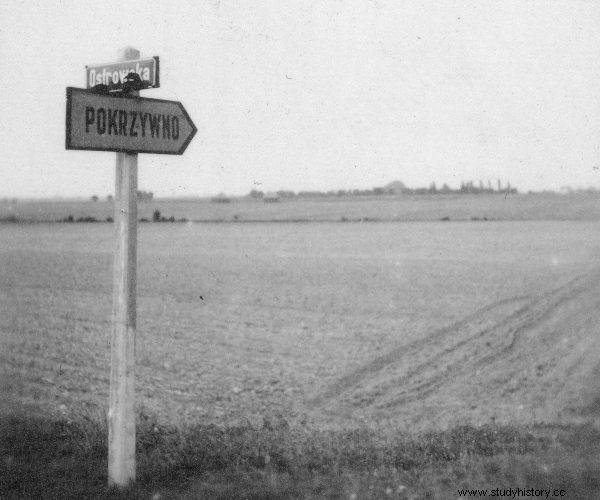
Pokrzywno is part of Poznań today. It was here that the Ursuline nunnery was founded. And this is the place the Germans chose to build a secret facility
The war ended for the Ursulines in January 1945, after Pokrzywno was seized by the Red Army. The sisters worked for the soldiers - they prepared their meals, washed and cleaned. Soviet troops occupied the main building until September 6, 1945 - only then did they leave the monastery, and the area was taken over by the Polish militia. During the stationing of the Red Army soldiers in Pokrzywno, a tragic event took place - on January 25, 1945 the sisters of Akwila Podskarbi and Kajus Trznadel were murdered by soldiers who tried to rape them . They resisted drunk Soviet soldiers and met them martyred for that.
There are many secrets connected with the wartime history of the Ursuline nuns in Pokrzywno. There are many rumors and legends about what happened here and what the Germans did here. It is difficult to find their sources today, and their usefulness is probably small. However, it is worth mentioning a few of them, if only to realize how mysterious the objects built by the Nazis in the monastery park were and how little was known about them.
Underground corridors
According to one report, one day between 1970 and 1972 an elderly man came to the convent in Pokrzywno. He claimed that during the war he worked here and "glazed" the barracks (he probably laid plaster and tiles in the buildings erected in the monastery park). In an interview with his sister Bogdana, Weyman confessed that the Germans - apart from the facilities that were almost ready at the end of 1944 - were to build a railway siding with a station. The buildings and the station were to be connected by an underground passage. This information was confirmed by the reports of the Ursulines, which claimed that such a transition had been established. In addition, was also supposed to exist a 7 km long underground tunnel from Pokrzywno to Poznań. Is it true? So far, no one has found in Pokrzywno neither the underground passage leading from the station to the monastery, nor the tunnel leading to Poznań.
These are not the only revelations, because we have information about the activities of the Germans in the monastery, which sound so sensational that it is difficult to imagine them to be true. Unfortunately, it is impossible to verify them today.
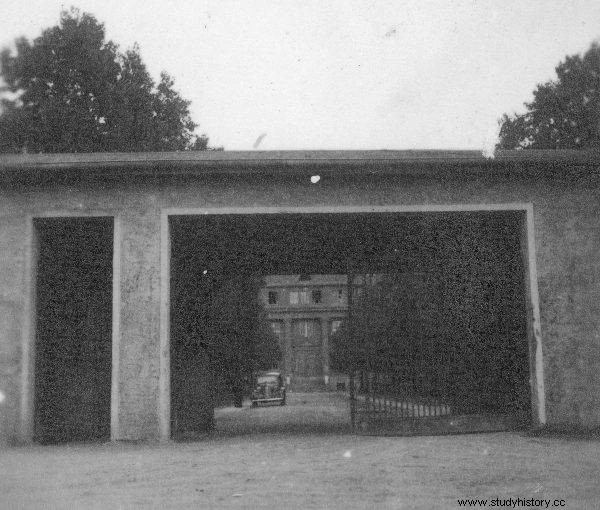
The entrance gate to the Ursuline Convent in Pokrzywno
In the archives of the Ursuline Sisters in Pokrzywno there is an interesting document:Snapshot memories about the main altar in Pokrzywno - 1939/1945, written in 1946 on the basis of the memoirs of sister Zbigniew Jaworska, from which we learn many important things about Pokrzywno and doctor Blome.
"Poland has not died yet"
Zbigniew's sister recalls that one afternoon in 1942, the Germans, headed by General Schumann (probably Erich Schumann), came to the convent. The nun showed the guests around and showed them, among other things, the main altar. At that time, Schumann was to whisper to his sister in Polish: "Poland has not died yet". One should be skeptical about this account, as it is unlikely that Schumann knew Polish and acted in this way.
Many months later, on Dr. Blome's 50th birthday, a party was held and Schumann showed up. It was probably 1944, January or February - considering that the doctor was born on January 31, 1894. Zbigniew's sister reports that the doctor and his family lived in the Elizabethan nunnery near the Ursuline convent in Pokrzywno - this is true, confirmed by the accounts of several Ursuline sisters working as servants in the doctor's apartment.
Zbigniew's sister and several other Ursuline nuns were ordered to show up at the mansion and serve the guests during the event. The nun described the birthday party fairly accurately - she recalled the buffet with drinks and sandwiches in the corridor, dinner with toasts and speeches. Schumann spoke to the sisters many times and asked about their situation, about work and related issues. It was then that Zbigniew's sister told him that due to the work carried out by the Germans in the main monastery building, the main altar would be dismantled, which worried the nuns very much. Has this situation really happened? Perhaps, given what happened next.
Demolition of the altar
During the speech in honor of Dr. Blome, Schumann was said to have said:
“My speakers mentioned many virtues and advantages of Dr. Blome, who turns fifty today. I will add one more thing to all of this, my friend. A truly noble person is known first of all by how he relates to what is dear, precious and even sacred to another human being. Here in the second monastery is the altar where the God of our nuns from Pokrzywna lived. This altar is to be torn down, removed. If you, Dr. Blome, are truly a noble man, you will give the order not to destroy this altar - on the contrary, you will order that when it is dismantled, not a single piece of marble be destroyed, and you give them all to the sisters. "
Did Schumann really make such a speech? It is not known. We have no other reports of this event.
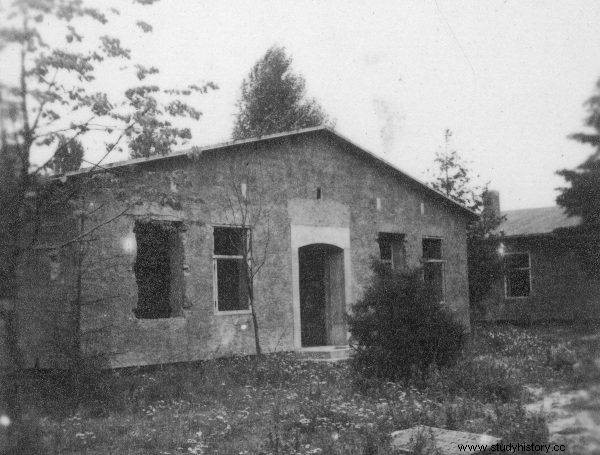
The Nazis rushed to empty the buildings so that no one could
guess the true purpose of the institute
After this speech, General Schumann was to come to the piano, play a beautiful melody and sing a song praising the work of the nuns from Pokrzywno. Then silence followed, followed by applause. This is the end of Zbigniew's sister's account. Again, we don't know if something like this really happened. However, such a situation cannot be ruled out. It is known that Schumann liked and knew music, he could play the piano and sing.
In the same message, Zbigniew's sister mentions that a few days later the demolition began - workers came and said that Dr. Blome was with them, who ordered the entire altar to be demolished so as not to destroy any element, and to give everything to the Ursulines. The altar with the stained glass windows survived the war, hidden by the nuns on the farm, and in April 1945 it was put back in its old place. This is also true, as confirmed by the accounts of other witnesses to the events in the monastery. Unfortunately, the memories of sister Zbigniew are the only source of information about Dr. Blome's birthday, which he celebrated in Pokrzywno in 1944.
Source:
The text is an excerpt from the book by Paweł Głuszek "Extermination Laboratory. The Dark Secret of the Ursuline Convent ", which has just been released by the Znak Horyzont publishing house.

